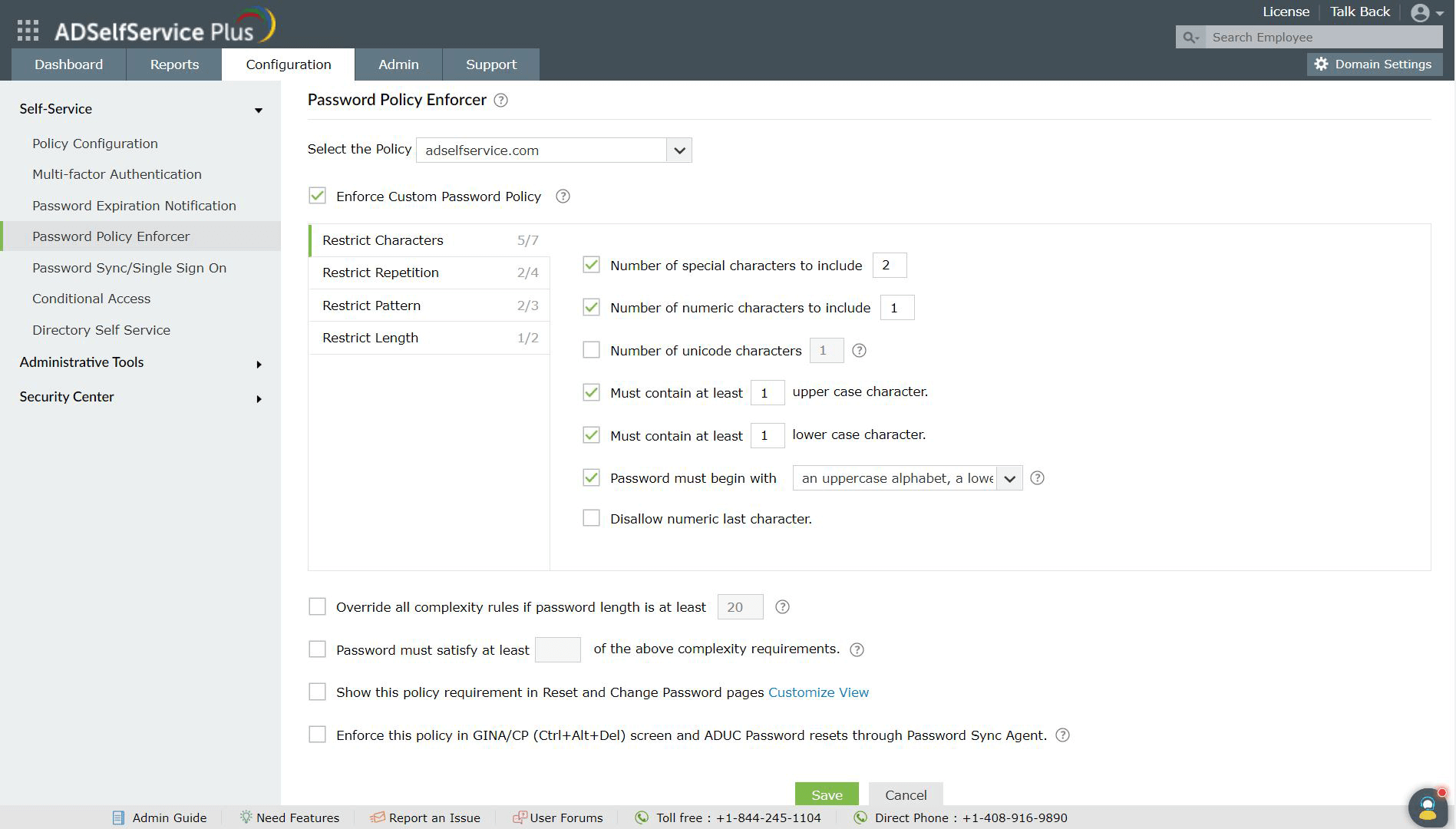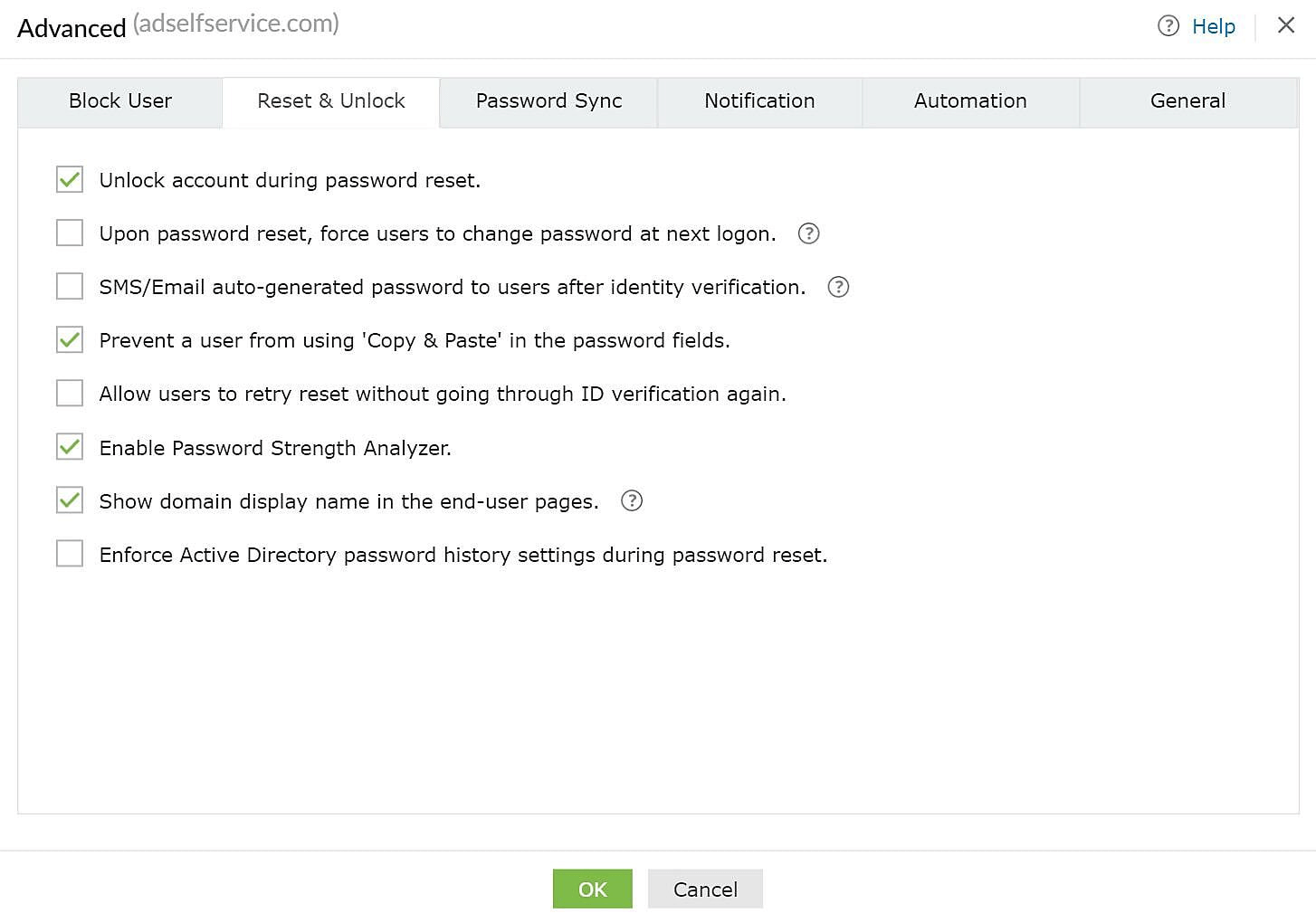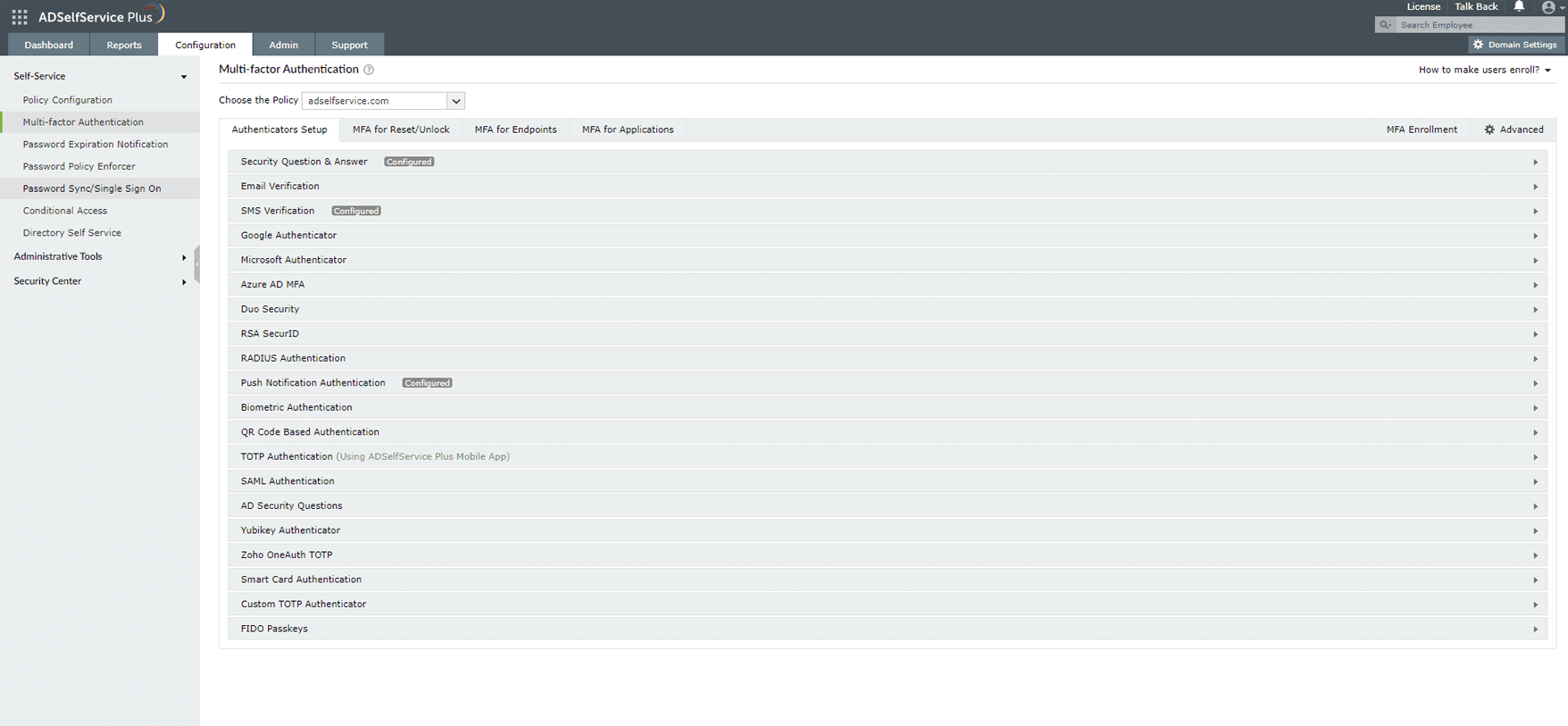Businesses are responsible for proper information storing and sharing. Dire events from the past like Yahoo's massive data breach resulting in millions of users' sensitive information being compromised highlight why business owners are so worried about data security in their organizations.
A data breach not only puts users' privacy at risk, but also irreversibly impacts a company's finances and reputation. This is why businesses need to adhere to compliance mandates like the GDPR, PCI DSS, and HIPAA to keep their data safe, and that's where ADSelfService Plus lends a hand.
Data compliance regulations are revised regularly, taking insights from password cracking experts, hacker behavior, and previous breaches. Here's what the regulations have to say about password security best practices:
| Compliance regulation | Description | Password security guidelines |
| GDPR | The GDPR was enacted by the European Union and it focuses on regulations to properly collect, store, and handle individuals' personal and sensitive data. |
|
| HIPAA | HIPAA includes standards to safeguard the health information of individuals that is handled by any business, institute, or agency. |
|
| PCI DSS | The PCI DSS includes regulations that businesses handling sensitive cardholder data must comply with. |
|
| Essential Eight | The Essential Eight comprises of baseline mitigation strategies put forth by the Australian government to amp up the cyberdefense of organizations. |
|
| CJIS | The CJIS, a division of the Federal Bureau of Investigation of the US, sets standards and appropriate controls to protect, transmit, store, and access criminal justice information. |
|
| SOX | The SOX act was enacted by the US government to safeguard shareholders and the public from accounting errors and fraudulent activities in organizations. |
|
| NIST | The NIST standard, drafted by the National Institute of Standards and Technology, is the most influential, recommended standard for creating strong passwords that cannot be hacked. |
|
Assign fine-grained password policies to users belonging to different groups and OUs as needed.
Choose the minimum number of complexity requirements your users' passwords should satisfy as per your organization's security needs.

1. Advanced fine-grain capabilities: Assign fine-grained password policies to users belonging to different groups and OUs as needed.
2. Customize complexity requirements: Choose the minimum number of complexity requirements your users' passwords should satisfy as per your organization's security needs.
Enforce AD password history settings during password resets to restrict the use of old passwords.
Allow or prevent copying and pasting passwords in password fields.

1. Unique passwords: Enforce AD password history settings during password resets to restrict the use of old passwords.
2. Ctrl+C and Ctrl+V: Allow or prevent copying and pasting passwords in password fields.
Choose from around 20 different authenticators to setup MFA for your users.

1. Ample authenticators: Choose from around 20 different authenticators to setup MFA for your users.
Free Active Directory users from attending lengthy help desk calls by allowing them to self-service their password resets/ account unlock tasks. Hassle-free password change for Active Directory users with ADSelfService Plus ‘Change Password’ console.
Get seamless one-click access to 100+ cloud applications. With enterprise single sign-on, users can access all their cloud applications with their Active Directory credentials. Thanks to ADSelfService Plus!
Intimate Active Directory users of their impending password/account expiry by mailing them these password/account expiry notifications.
Synchronize Windows Active Directory user password/account changes across multiple systems, automatically, including Office 365, Google Workspace, IBM iSeries and more.
Ensure strong user passwords that resist various hacking threats with ADSelfService Plus by enforcing Active Directory users to adhere to compliant passwords via displaying password complexity requirements.
Portal that lets Active Directory users update their latest information and a quick search facility to scout for information about peers by using search keys, like contact number, of the personality being searched.